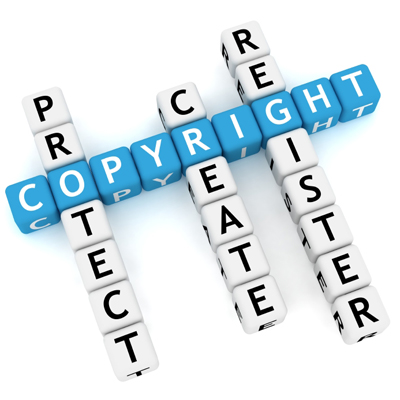

Every musician, singer and composer needs to ask themselves certain questions, such as 'what exactly is copyright, and how can I be sure I will be fairly paid for my work?' or 'what other rights am I entitled to?' If you don't ask these questions, you run the danger of missing out on a large part of your (future) income. For this reason, it is important – and not only in the digital age - to make sure that you have some understanding of this topic. Here are four pieces of important information for you below:
Copyright
Copyright protects intellectual creation in art and literature. If you have composed or written lyrics for a song that displays an individual character or counts as a 'new creation', you are automatically recognized as the author. The corresponding protection is immediately valid, meaning that only you as the author have the right to determine how, when, where, and in what form your work may be published. If you decide to publish your work publicly, then it is a good idea to become a member of a collection society such as SUISA or GEMA. Their task, similar to that of a trustee, is to monitor when and where your work is played or used. You can transfer the right to do this over to a collection society by means of a “collection agreement”. This pays out approximately 10% of the income received to the author, in the form of royalties.Even though the “protection” of your work comes into effect from the moment it was created, the question still arises of whether you could prove the ‘originality’ of the work, should it be necessary. Unfortunately, it is not enough just to register with a collection society. If you want to avoid old fashioned or expensive methods like contacting a lawyer or posting yourself sealed copies of your songs, iMusician Digital offers MusicLocker, a modern and digitally secure way of representing and protecting your data, and registering it with a time stamp.
You can also opt to pass on a part of your copyright to what are commonly known as music publishers. The basic task of these organizations has changed drastically over the last few years. Where music publishers (like literary publishers) used to concentrate on the printed note or text, they now focus on synchronization rights, for film, TV, games, etc. This may also include working as the middle-man between composers/writers and music labels. Put simply, music publishers have to promote the ‘distribution of your work’, and offer you (as the author) substantial support.
Related Rights
Regarding music, “related protection rights” – modeled after copyrights but known as “neighboring rights” - protect the rights of the practicing artist. Whether you are a singer, instrumentalist, music producer, or interpreter, your ‘artistic performances’ can contribute significantly to the success of a work. This is why related copyrights have been introduced for practicing artists. In concrete terms, this means that you also have the right to be compensated correspondingly, as a musician or an interpreter. However, it is your duty to prove that you had a direct influence upon the artistic interpretation of the copyrighted work. If you are a sound engineer for example you do not have any rights, whereas if you are a music producer who imprints your ‘signature style’ onto the work in question and is significantly involved in the creative process, then you do.There are also collection societies specifically for this purpose, such as SwissPerform or GVL, who draw up contracts with those who produce audio (music labels or “Producing Phono”), too.
Recording Rights ("Master Tapes")
After you have worked out the essential points regarding copyright and related copyright and have organized contracts with the corresponding collection societies, another question pops up: “What happens to our recordings now?” The answer to this question is simple: either you use the recordings yourself and make them immediately accessible to the public, or you transfer the rights to a music label, which will make a contract transferring the copyright to them, or they even might offer you an artist contract.More Copyrights
It is usually only after a certain amount of success that other sources of income suddenly emerge, for which you also possess the copyrights. Some examples of these are the rights regarding your merchandise (t-shirts and other fan wares) or your band name and image. The more successful you become, the more attention you will receive from brand producers and the advertising agencies which belong to them. It’s better to wait patiently for this, instead of giving away these rights unnecessarily early.Conclusion
It is important that you protect yourself early on, think extensively about the important decisions you need to make and consider where you want to go with your musical career. In this situation, iMusician offers you a one-stop solution. You can also consider becoming a member of an organization for musicians, such as Musikschaffende Schweiz, who are happy to offer you more advice. In the meantime, happy music making!
Ready to get your music out there?
Distribute your music to the widest range of streaming platforms and shops worldwide.

